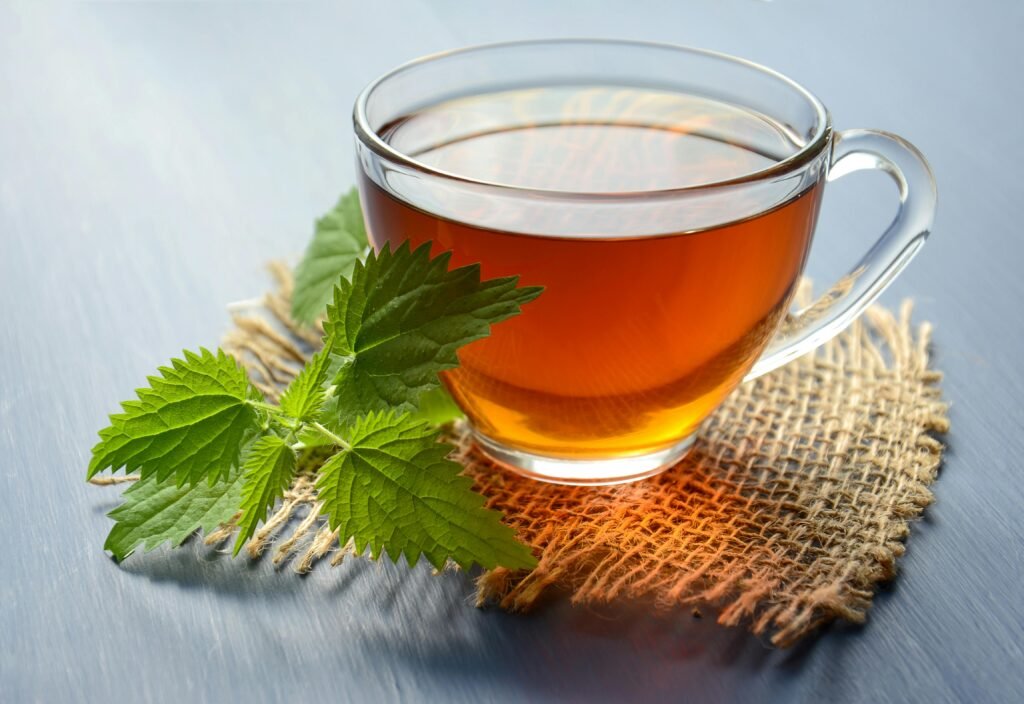High blood pressure is often called the “silent killer”. While medication is sometimes necessary, many people can lower their blood pressure naturally through lifestyle changes. Implementing simple dietary adjustments, increasing physical activity, and managing stress can significantly reduce blood pressure levels without the need for pharmaceuticals.
Natural approaches to managing hypertension have gained popularity due to their effectiveness and minimal side effects. These methods not only help control blood pressure but also contribute to overall cardiovascular health. The American Heart Association recommends several lifestyle modifications as the first line of defense against hypertension.
Exploring natural ways to lower blood pressure empowers individuals to take control of their health. By making informed choices about diet, exercise, and daily habits, many people can achieve and maintain healthy blood pressure levels. This proactive approach can reduce the risk of heart disease and improve quality of life.
Key Takeaways
- Lifestyle modifications can effectively lower blood pressure without medication
- Dietary changes and stress management techniques play crucial roles in managing hypertension
- Regular exercise and heart-healthy supplements can support optimal blood pressure levels
Understanding High Blood Pressure
High blood pressure, or hypertension, is a common yet serious health condition that affects millions worldwide. It’s crucial to grasp its definition, associated risks, and potential symptoms to manage it effectively.
Defining Systolic and Diastolic
Blood pressure is measured using two numbers: systolic and diastolic. The systolic pressure represents the force exerted on artery walls when the heart beats, while diastolic pressure indicates the force when the heart rests between beats.
A normal blood pressure reading is typically below 120/80 mmHg. Readings between 120-129/80 mmHg indicate elevated blood pressure. Hypertension is diagnosed when readings consistently exceed 130/80 mmHg.
It’s important to note that blood pressure naturally fluctuates throughout the day. Factors such as stress, physical activity, and even time of day can influence these readings.
Risks Associated With Hypertension
Uncontrolled high blood pressure can lead to severe health complications. The constant strain on blood vessels and organs can result in:
- Heart disease: Increased risk of heart attacks and heart failure
- Stroke: Damage to brain blood vessels
- Kidney damage: Impaired filtering function
- Vision problems: Damage to blood vessels in the eyes
Hypertension is often called the “silent killer” because it typically has no noticeable symptoms. This makes regular blood pressure checks crucial, especially for those with risk factors such as obesity, smoking, or a family history of hypertension.
Identifying the Symptoms
While high blood pressure often develops without obvious signs, some individuals may experience:
- Headaches, particularly in the morning
- Dizziness or lightheadedness
- Shortness of breath
- Nosebleeds
- Visual changes
These symptoms usually occur when blood pressure reaches dangerously high levels. However, it’s important to remember that many people with hypertension don’t experience any symptoms at all.
Regular check-ups and home monitoring are essential for early detection and management of high blood pressure. Lifestyle changes and medication, when necessary, can effectively control hypertension and reduce the risk of complications.
Dietary Adjustments to Manage Blood Pressure
Making smart food choices can significantly impact blood pressure levels. By focusing on specific nutrients and food groups, it’s possible to naturally lower blood pressure through diet alone.
Reducing Salt and Sugar Intake
Limiting sodium consumption is crucial for managing blood pressure. The DASH diet recommends keeping daily sodium intake below 2,300 mg. Processed foods often contain hidden sodium, so reading labels is essential.
To reduce salt intake:
- Choose fresh or frozen vegetables over canned
- Flavor foods with herbs and spices instead of salt
- Opt for low-sodium versions of condiments and soups
Sugar can also affect blood pressure indirectly by contributing to weight gain. Limiting added sugars in beverages and foods can help maintain a healthy weight and blood pressure.
Incorporating Potassium-Rich Foods
Potassium helps balance sodium levels in the body, potentially lowering blood pressure. Adults should aim for 3,500-5,000 mg of potassium daily from food sources.
Potassium-rich foods include:
- Bananas
- Sweet potatoes
- Beans
- Leafy greens
- Avocados
It’s important to consult a dietitian before significantly increasing potassium intake, especially for those with kidney issues.
Importance of Fruits, Vegetables, and Whole Grains
A diet rich in fruits, vegetables, and whole grains can lower blood pressure and improve overall heart health. These foods are high in fiber, vitamins, and minerals while being naturally low in sodium.
Aim for:
- 4-5 servings of fruits daily
- 4-5 servings of vegetables daily
- 6-8 servings of whole grains daily
Whole grains like oats, quinoa, and brown rice provide sustained energy and help maintain a healthy weight. Fruits and vegetables offer antioxidants that support cardiovascular health.
Incorporating these dietary changes can lead to significant improvements in blood pressure over time. It’s essential to maintain consistency and combine these adjustments with other lifestyle modifications for optimal results.
Lifestyle Modifications for Heart Health
Adopting heart-healthy habits can significantly impact blood pressure and overall cardiovascular well-being. These lifestyle changes encompass physical activity, stress management, weight control, and moderation of harmful substances.
Engaging in Regular Physical Activity
Regular exercise is crucial for maintaining a healthy heart and managing blood pressure. Aim for at least 150 minutes of moderate-intensity aerobic activity or 75 minutes of vigorous-intensity aerobic activity per week.
Activities like brisk walking, swimming, or cycling can help strengthen the heart muscle and improve circulation. Strength training exercises, performed 2-3 times a week, can also contribute to better heart health.
It’s important to start slowly and gradually increase the intensity and duration of workouts. Always consult a healthcare provider before beginning a new exercise regimen, especially for individuals with pre-existing heart conditions.
Effective Stress Management Techniques
Chronic stress can elevate blood pressure and increase the risk of heart disease. Implementing stress-reduction techniques is essential for maintaining cardiovascular health.
Meditation and deep breathing exercises can help calm the mind and reduce stress hormones. Practicing mindfulness for just 10-15 minutes daily can make a significant difference.
Engaging in hobbies or activities that bring joy and relaxation can also alleviate stress. This might include reading, gardening, or spending time in nature.
Regular physical activity, as mentioned earlier, doubles as an effective stress management tool. Exercise releases endorphins, which are natural mood elevators.
The Role of Weight Management
Maintaining a healthy weight is crucial for heart health and blood pressure control. Even a modest weight loss of 5-10% can lead to significant improvements in cardiovascular risk factors.
A balanced diet rich in fruits, vegetables, whole grains, and lean proteins is key to achieving and maintaining a healthy weight. Portion control and mindful eating practices can also contribute to effective weight management.
Regular physical activity, as discussed earlier, plays a vital role in weight management. Combining aerobic exercises with strength training can help build lean muscle mass and boost metabolism.
It’s important to set realistic weight loss goals and focus on sustainable lifestyle changes rather than quick fixes or fad diets.
Understanding the Effects of Smoking and Alcohol
Smoking is a major risk factor for heart disease and can significantly raise blood pressure. Quitting smoking is one of the most impactful steps one can take to improve heart health.
Nicotine replacement therapy, counseling, and support groups can aid in smoking cessation. It’s never too late to quit, and the benefits begin almost immediately after the last cigarette.
Moderate alcohol consumption may have some heart benefits, but excessive drinking can lead to high blood pressure and other cardiovascular problems.
Men should limit alcohol intake to no more than two drinks per day, while women should have no more than one. It’s important to note that for some individuals, complete abstinence may be necessary.
Natural Supplementation and Heart-Healthy Herbs
Natural supplements and herbs can play a significant role in supporting cardiovascular health and managing blood pressure. These remedies offer potential benefits when incorporated into a heart-healthy lifestyle.
Implementing Herbal Remedies
Several herbs have shown promise in helping to lower blood pressure naturally. Garlic is a well-known herb that may help reduce blood pressure by promoting the production of nitric oxide, which helps relax blood vessels.
Aged garlic extract has been studied for its potential cardiovascular benefits. Basil, another aromatic herb, contains eugenol, a compound that may help relax blood vessels.
Green tea is rich in polyphenols, which are antioxidants that can support heart health. Ginger and cinnamon have also been associated with improvements in blood pressure and overall cardiovascular function.
Benefits of Essential Nutrients and Minerals
Certain nutrients and minerals play crucial roles in maintaining healthy blood pressure levels. Magnesium is essential for proper muscle and nerve function, including the muscles in blood vessel walls.
Calcium works in conjunction with magnesium to regulate blood pressure. Vitamin C acts as an antioxidant and may help improve blood vessel function.
L-arginine, an amino acid, can boost nitric oxide production, potentially leading to improved blood flow. Omega-3 fatty acids, found in fish and certain seeds, have anti-inflammatory properties that support heart health.
Melatonin, known for its role in sleep regulation, may also have beneficial effects on blood pressure when taken as a supplement.





